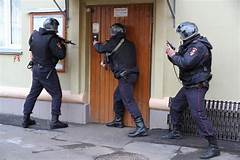
We defend political prisoners, but as long as prisons exist, as long as they torture and kill the most ordinary prisoners, including people who are not the most pleasant, as long as criminal cases are fabricated for the sake of “sticks” and “stars,” no one can consider themselves free.
Information about what happens behind barbed wire is rarely and belatedly received. The Verstka Telegram channel recently published information about the victims of police lawlessness in 2023. This year, at least 50 people have died in pre-trial detention centers, special reception centers, police departments, during arrests, and in police cars. These data were obtained through a thorough analysis of reports from government agencies and the media, and, of course, they are not complete.
The highest number of deaths occurred in pre-trial detention centers (SIZO) – 22 people died there over the year, 14 in police departments, five during detention, four in police cars, two in special detention facilities, and one each in court, a FSIN prisoner transport vehicle, and a hospital after being transported from SIZO.
Among the dead were 48 men and two women. The cause of death for 11 people was allegedly heart problems, another 11, according to official data, committed suicide, and nine died after they “suddenly felt bad.”
At least two people died after being tortured by police officers, one detainee in a pre-trial detention center died from a drug overdose, chronic illness, and deliberate failure to provide medical assistance, and one was killed by cellmates. The causes of death for another 13 people are unknown.
The average age of the 44 known dead is 45.5 years. The youngest on the list turned out to be a 13-year-old schoolboy from the Yakut village of Belaya Gora, who was brought home in a police car trunk in an unconscious state.
The oldest victim was 73-year-old Nikolai Bukhonin, who was suspected of pedophilia. The man was found dead in the pre-trial detention center, and his body showed numerous injuries: “a scalped head wound, facial bruising, a shoulder dislocation, and a broken arm.”
Deaths were recorded in at least 34 settlements. Ten people died in Moscow, three each in Rostov-on-Don and Yekaterinburg, and two each in Lipetsk, Orenburg, and Samara.
Is a society without prisons at all possible, and what is the situation with police violence in conditionally democratic countries? When detaining individuals, police officers can sometimes act even more harshly than in Russia, but courts are generally truly independent, and completely fabricated cases simply won’t have any prospects. Physical repression (beatings, torture through hunger and cold) is not applied in European prisons, but psychological measures are used, such as solitary confinement, deprivation of the right to keep a pet in the cell that you have become attached to, as well as laws that allow not releasing a person after serving their sentence, as they are allegedly still not reformed and pose a threat to society. The very uncertainty itself serves as torture here. Our German comrade Thomas Meyer-Falk has written extensively about such methods of influence.
A lot has been said and written about whether a society without prisons is even possible. There are technological solutions, where the perpetrator of a crime will be under round-the-clock surveillance, revolutionary changes in the organization of society that will make most crimes “irrelevant,” and various traditional practices of judicial proceedings and dealing with offenders, where their fate will be decided by those who were directly harmed by their actions.
It is likely that, in one form or another, practices of depriving a person of their freedom will be with us for a long time. At this moment, it is clear to us that all police officers and prison guards guilty of torturing and killing inmates are people who use their unchecked power against those in a helpless position. Their names and personal details should be identified and published, and acts of retribution against them will be just, as will their ostracism by society.
K.V.
Source: a2day
